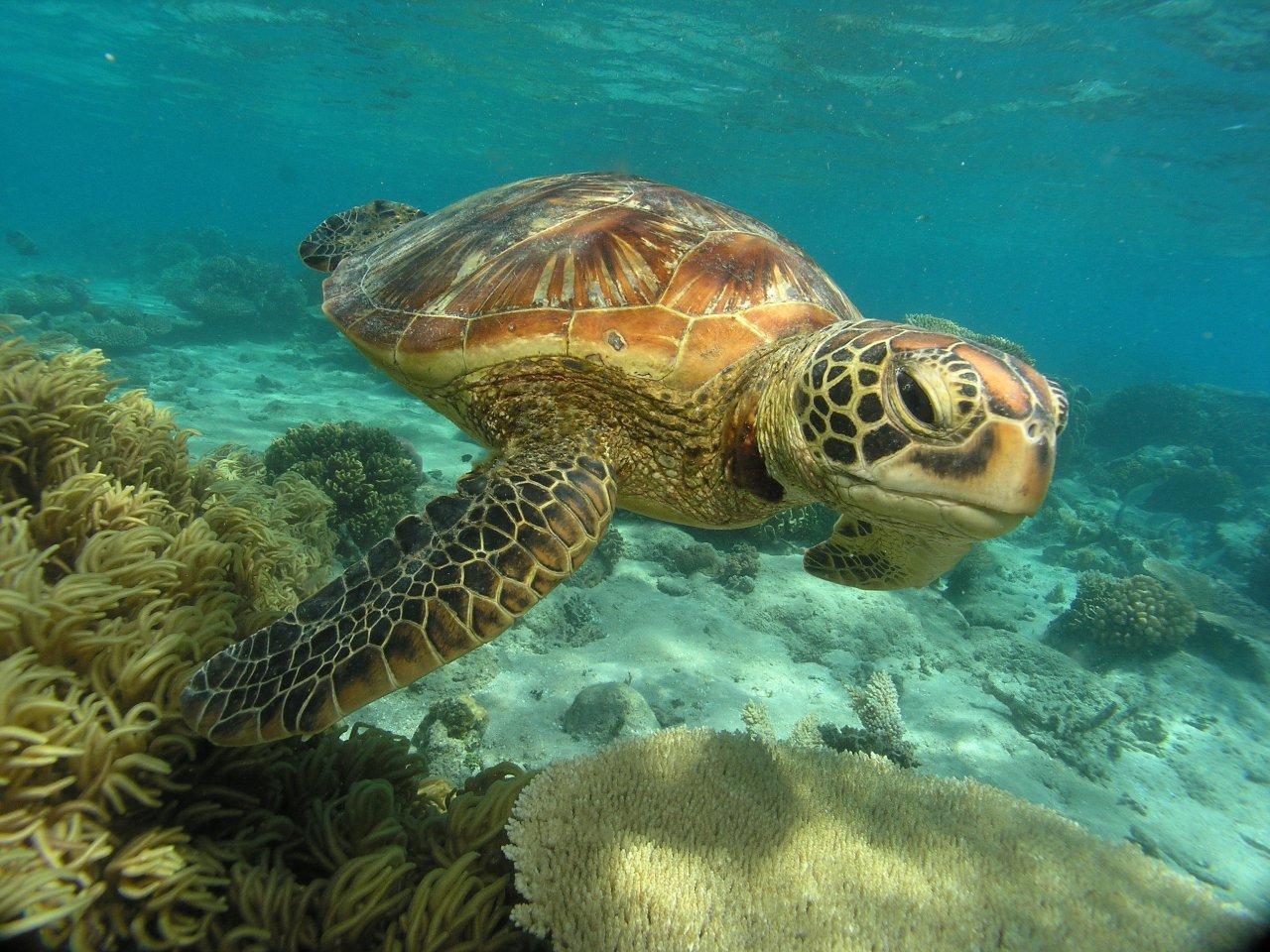
Toxic Cocktail of Man-Made Chemicals Found in Great Barrier Reef Turtles

Green Sea Turtles in Australia’s Great Barrier Reef are some of the world’s most majestic creatures. They have a lifespan of up to 50 years, but after recent results from blood tests on the marine animals, their health might be in jeopardy.
Man-made substances and chemicals are contaminating the ocean and, consequently, sea turtles. After testing Green Turtles’ bloodstream in various locations along the 1,400 mile stretch of the reef, researchers from the University of Queensland found that the turtles had a wild cocktail of common drugs like milrinone for heart problems and allopurinol for gout, household cleaning products, cosmetics and hundreds of thousands of other industrial chemicals like pesticides and herbicides in their systems.
“The worrying thing is there are more chemicals we could not identify than chemicals we could,” said Amy Heffernan, co-author of the study. “There is one new chemical registered for use every six seconds, so the libraries and the databases that we use to identify these chemicals just can’t keep up.”
Some of the more obvious signs of harm to the turtles’ health were inflammation and liver dysfunction. But, the extent of the impact remains unknown.
“Humans are putting a lot of chemicals into the environment and we don’t always know what they are and what effect they are having,” said Heffernan. “What you put down your sink, spray on your farms or release from industries ends up in the marine environment and in turtles in the Great Barrier Reef.”
What is known, however, is that the reef has been under quite a bit of pressure in recent decades due to climate change. With overfishing, waste dumping and increased pH levels leading to massive coral bleaching and die off, the turtles’ habitat is at major risk of total extinction. A heavy dose of foreign substances is just the cherry on top.
The research is just one element of a larger study funded by the World Wildlife Fund who will be working with farmers to find better management practices for the turtles and all wildlife in the reefs.

 233k
233k  41k
41k  Subscribe
Subscribe 